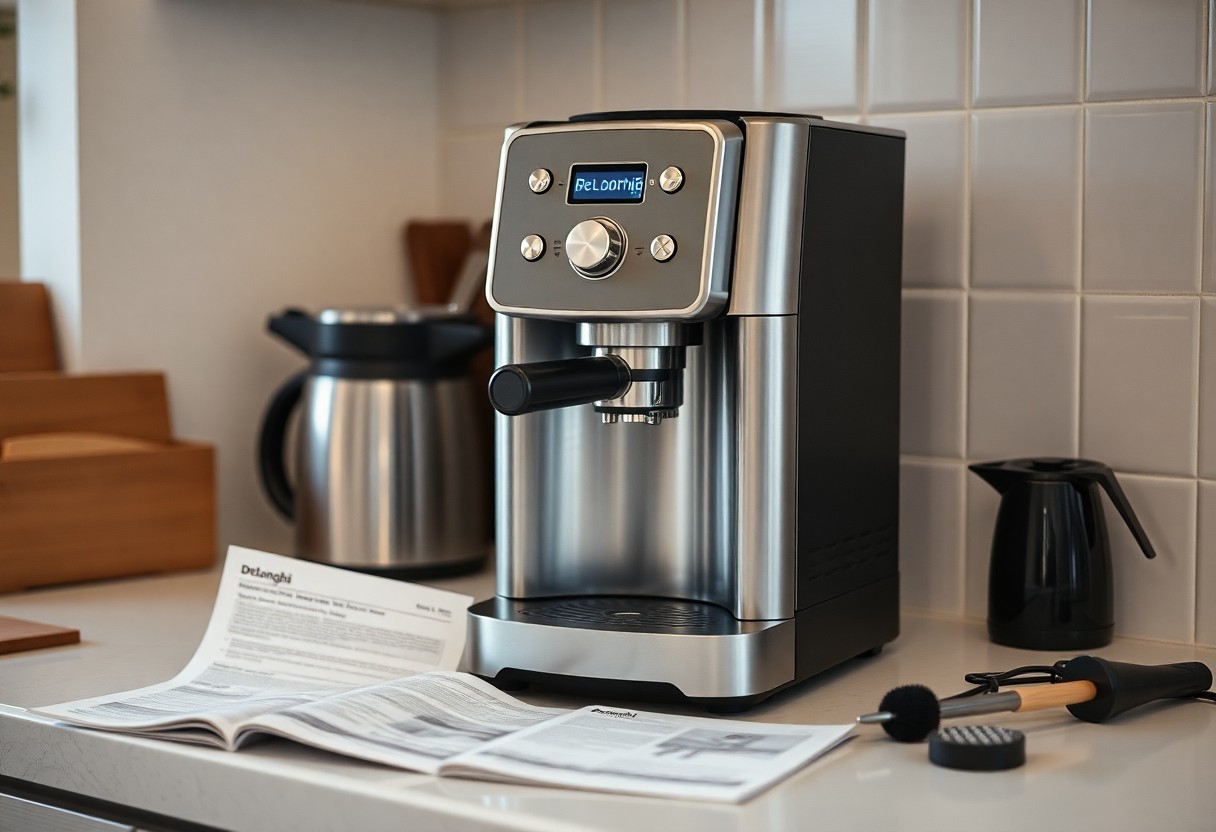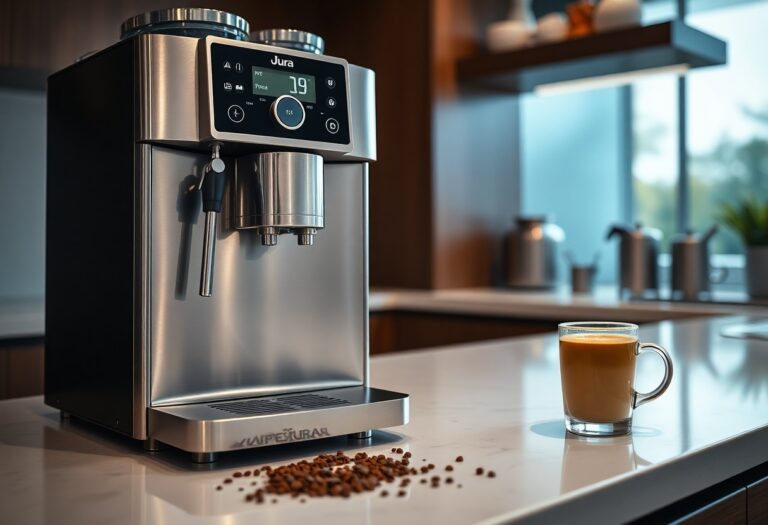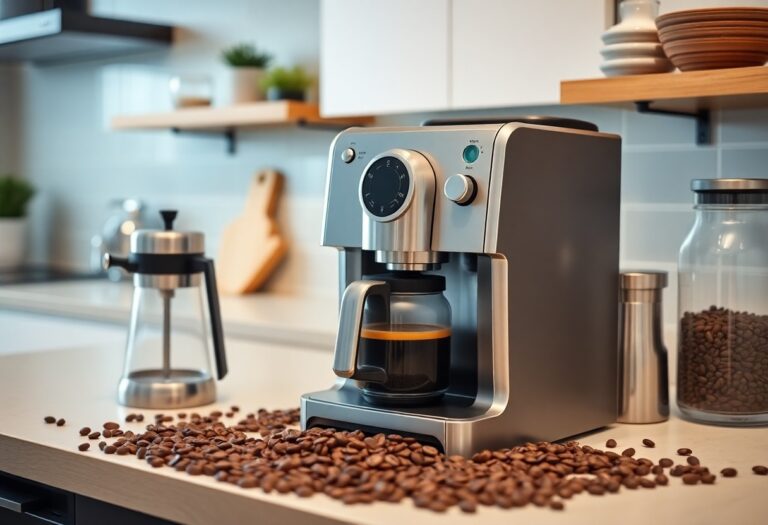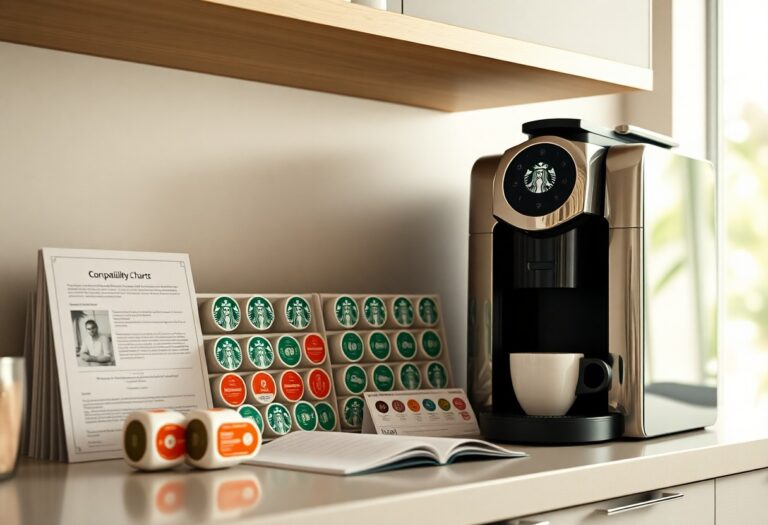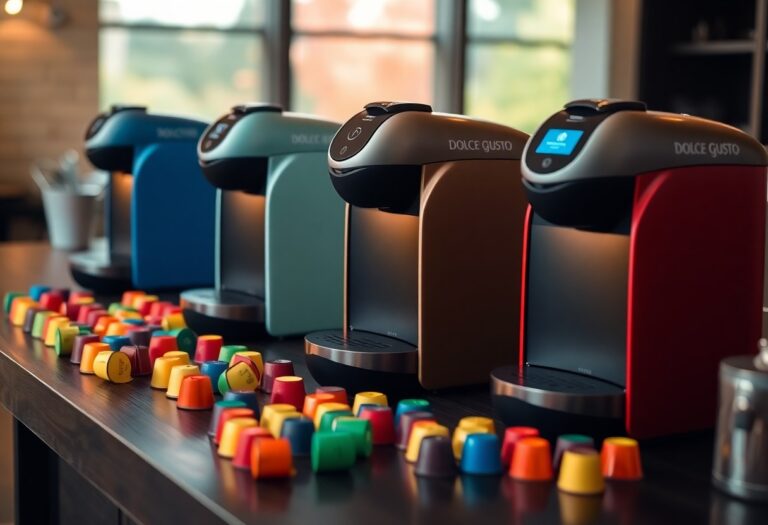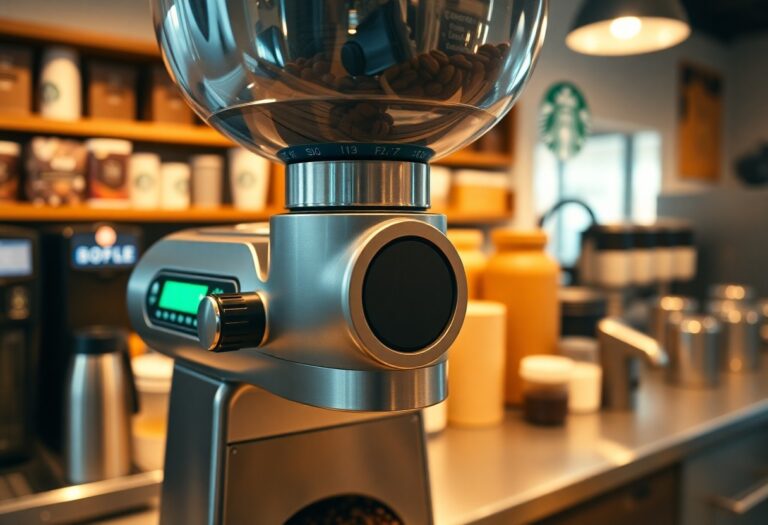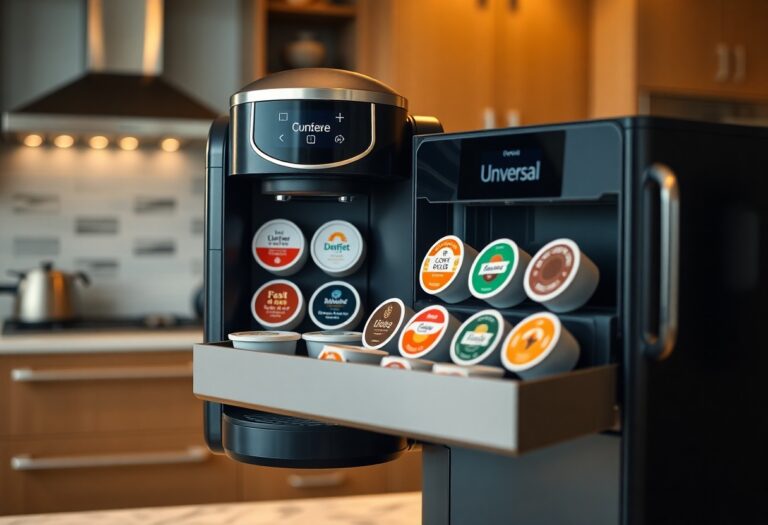What is Wrong with My DeLonghi Coffee Machine – Troubleshooting
DeLonghi coffee machines are known for their quality and reliability, but like any appliance, they can sometimes encounter issues. If your machine isn’t brewing properly or producing the rich coffee flavor you expect, it’s important to pinpoint the problem quickly. In this guide, you’ll discover common troubleshooting steps to address your concerns efficiently, helping you get back to enjoying your favorite coffee brews with minimal downtime. By understanding your DeLonghi’s features and maintenance needs, you can ensure a long-lasting relationship with your machine.
Key Takeaways:
- Check for power supply issues, including ensuring the machine is plugged in and that the outlet is functional.
- Inspect the water reservoir for proper placement and refill if it’s empty, as a lack of water can affect brewing.
- Clean the machine regularly, focusing on the brew group and any clogged filters to maintain optimal performance.
- Look for error codes on the display panel, as they can provide specific insights into what might be malfunctioning.
- Refer to the user manual for model-specific troubleshooting steps and maintenance guidelines to address common problems.
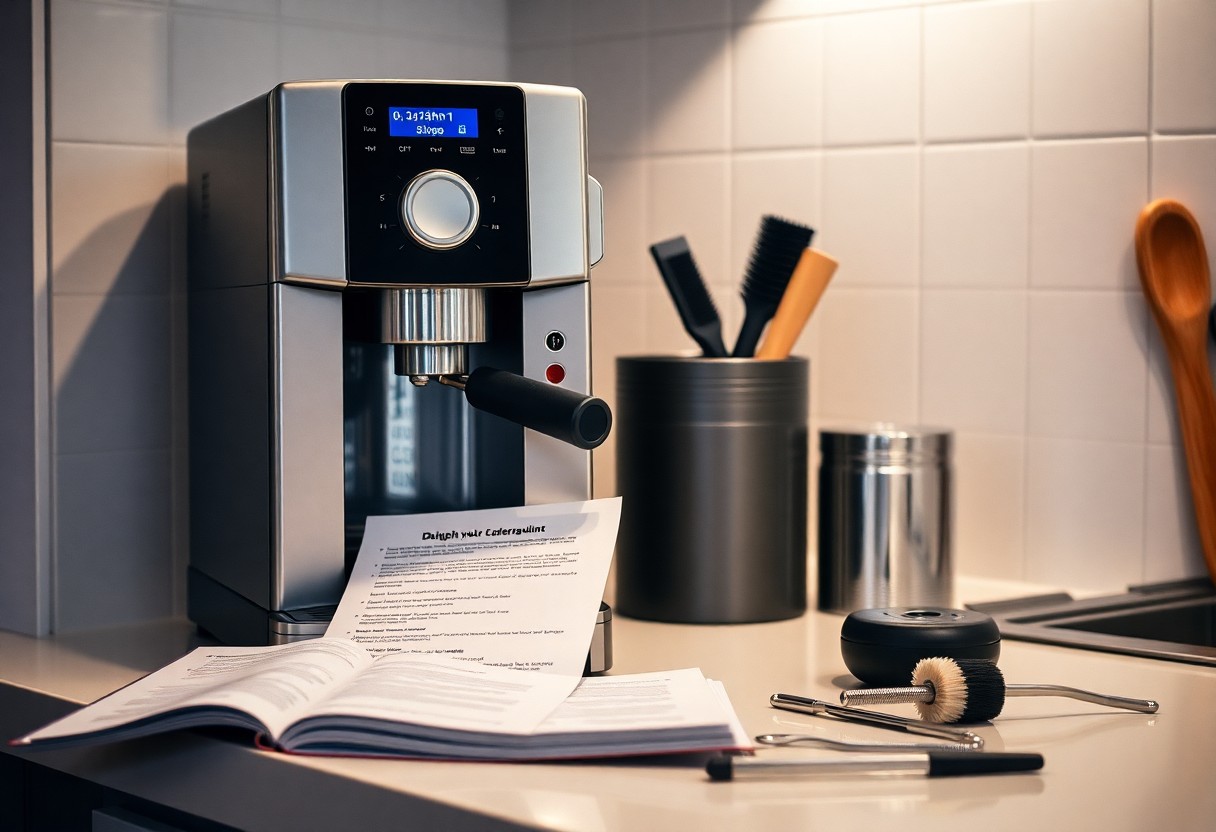
Identifying Common Malfunctions
Common issues with your DeLonghi coffee machine can stem from various sources, often leading to undesirable brew quality or functionality problems. You might notice irregular sounds, inconsistent water temperature, or even a complete failure to start. It’s beneficial to familiarize yourself with these symptoms so you can quickly identify what’s wrong. For example, if your machine is slow to brew, it could be due to mineral buildup, while a bitter taste may indicate a need for a new coffee grind or a change in brewing settings.
Diagnostic Techniques for Everyday Issues
To diagnose everyday issues with your coffee machine, start by conducting a thorough visual inspection. Check for any visible blockages in the machine’s components such as the water reservoir, the brew group, and the coffee grounds container. Simple fixes, like descaling your machine or cleaning the brew group, can often resolve common problems. Regular maintenance not only extends the life of your machine but also ensures optimal performance.
Uncovering Hidden Problems With Your Brew
Beneath the surface of your daily brew, there may be hidden problems affecting both flavor and functionality. Issues like inconsistent espresso extraction, off-tasting brew, or even a slow water flow can stem from neglected maintenance. Pay attention to how your machine performs over time, as fluctuations in taste or output can signal deeper mechanical issues.
For instance, if you experience channels or uneven extraction in your espresso, it may be indicative of a dirty brew basket or a malfunctioning pump. Regularly inspecting and cleaning these components can prevent such problems from escalating. Additionally, consider factors like the quality of your water and the freshness of the coffee beans, as both greatly contribute to the final taste. Conducting periodic checks of all these elements will help you uncover and resolve issues quickly.
Water Supply Woes: The Lifeblood of Your Machine
Your DeLonghi coffee machine relies on a steady supply of water to produce that perfect cup of coffee. If you’re experiencing issues, it might be time to assess your water source and connections. Ensure that your water reservoir is filled to the proper level and securely in place. Any hiccup in the water flow can hinder functionality, leading to subpar brews and frustration. Sometimes, impurities in your water can affect the machine’s performance, so consider using filtered water to prevent potential disruptions.
Clogs and Obstructions: The Silent Killers
Undetected clogs and obstructions can severely affect your coffee machine’s ability to function effectively. Mineral buildup from hard water or coffee grounds can restrict flow through imperative pathways, causing inconsistent brewing cycles and less-than-ideal coffee quality. Regular descaling is a simple yet *effective* measure to prevent these issues, ensuring that your machine operates smoothly and brews rich, flavorful coffee.
Troubleshooting Water Pressure and Flow Rate
Inadequate water pressure or flow rate can compromise your coffee machine’s performance, leading to weak or unevenly brewed coffee. Checking the pressure is a straightforward process; start by verifying that your tap water is supplied at a minimum of 20 psi. If you’re using a water filtration system, ensure it’s functioning properly and not obstructing flow. Additionally, inspect any hoses or connections for kinks or leaks, which can disrupt the water passage.
Paying attention to water pressure and flow rate can make a significant difference. If you discover low pressure impacting your brewing quality, consider adjusting the water source or switching to a direct line connection for consistent pressure. Some users have noted that switching to a different brand of water filter or even cleaning existing filters can significantly enhance water flow. Regular maintenance, like back-flushing or cleaning the machine’s internal mechanisms, also keeps everything functioning as it should.
The Coffee Grounds Conundrum
Coffee grounds play a significant role in the brewing process of your DeLonghi machine. If they are too fine or too coarse, or if the coffee is stale, it could lead to poor extraction and an unsatisfying cup of coffee. Identifying the right grind size is vital to ensure that your coffee machine operates efficiently and delivers the flavors you expect. Taking a closer look at grind size and maintaining your machine can resolve many common brewing issues.
Grind Size and Its Impact on Extraction
The grind size of your coffee beans directly affects how water extracts flavors during brewing. A grind that is too fine can lead to over-extraction, resulting in a bitter taste, while a coarse grind may under-extract, causing a weak and sour flavor. Finding the right balance is key; generally, a medium grind works best for most DeLonghi coffee machines and helps achieve optimal extraction.
Maintenance: Cleaning Coffee Baskets and Filters
Regular cleaning of coffee baskets and filters ensures that your DeLonghi machine continues to produce high-quality brews. Residue from coffee oils and particles can accumulate over time, impacting flavor and potentially affecting the machine’s performance. A thorough clean every few uses keeps your coffee tasting fresh and equipment functioning properly.
To clean the coffee baskets and filters, rinse them under warm water after each use, ensuring that any leftover coffee grounds are removed. For a deeper clean, use a soft brush to dislodge stubborn residues and a solution of vinegar and water to remove oily buildups. Additionally, always check your owner’s manual for specific cleaning guidelines tailored to your model, as regular maintenance can extend the lifespan of your machine and enhance your coffee experience.
Electrical Eccentricities: When Your Machine Goes Silent
If your DeLonghi coffee machine suddenly goes silent, it’s often a sign of underlying electrical issues that need attention. This could be anything from a simple power outage to more complex internal malfunctions that stop your machine from functioning. Identifying the root cause is important for restoring your brewing routine, so let’s dive deeper into potential electrical problems that could be disrupting your daily caffeine fix.
Power Issues: From Cords to Connection
Unexpected silence might stem from power issues, which can often be traced back to your power cord or outlet connection. A frayed power cord can interrupt the flow of electricity, leading to your coffee machine ceasing operation. Alternatively, a faulty wall outlet or power strip can prevent sufficient power from reaching your machine, so check these connections carefully.
Internal Components: Fuses, Sensors, and Circuit Boards
If power sources check out, focus on internal components like fuses, sensors, and circuit boards. A blown fuse may lead to a complete power failure, while malfunctioning sensors could fail to signal the readiness of your coffee machine. Circuit boards are often the heart of the machine, and if they develop faults due to wear or damage, they can completely halt operation.
Fuses in your coffee machine serve as safety devices designed to protect it from power surges, and when they blow, you’ll inevitably find your machine unresponsive. Sensors monitor the machine’s functions, such as temperature and water levels, and any issues here could prevent the brewing process from even starting. Circuit boards are responsible for the overall operation of your machine; damage or faulty connections can disrupt critical communications between components, causing a full electrical blackout. Regular inspections and maintenance can help prevent these internal issues before they disrupt your coffee-making routine.
Routine Maintenance That Prevents Future Mishaps
Implementing a regular maintenance routine for your DeLonghi coffee machine can significantly enhance its lifespan and performance. Simple steps, such as cleaning the brew unit and descaling the machine, can prevent issues down the line. Establish a habit of checking and replacing worn parts regularly to ensure consistent coffee quality and avoid costly repairs. By staying proactive with these tasks, you help sustain the machine’s efficiency, leading to consistent and satisfying brews day after day.
Essential Cleaning Procedures for Longevity
Regular cleaning of your DeLonghi coffee machine directly affects its longevity and coffee quality. This includes washing the drip tray, water reservoir, and coffee grounds container after each use, alongside running a vinegar or descaling solution through the system every few months. Keeping the exterior and removable components clean not only prevents build-up but also helps you maintain a hygienic brewing environment, ensuring each cup tastes as fresh as the last.
Best Practices for Regular Maintenance and Care
Incorporating simple yet effective practices into your routine can greatly enhance your coffee machine’s performance. Always use filtered water to prevent mineral deposits, which can damage the machine. Additionally, pay attention to the grind size of your coffee beans; a consistent grind leads to smoother extraction, improving your drink’s taste. Also, check seals and gaskets for wear, and consider replacing them annually to avoid leaks.
Utilizing filtered water not only contributes to great flavor but also minimizes the need for frequent descaling, extending your machine’s lifespan. It’s advisable to schedule a monthly deep clean, which involves removing and rinsing the brew group, as buildup can hinder performance dramatically. Regularly updating your operating software, if applicable, can also lead to smoother operation, adding to your machine’s overall efficiency. By keeping this structured maintenance routine, you can ensure your DeLonghi operates optimally for years to come.
Final Words
Drawing together, troubleshooting your DeLonghi coffee machine can significantly enhance your coffee experience and extend the life of your appliance. By being proactive in identifying issues such as inconsistent brewing, strange noises, or water-related problems, you can implement effective solutions. Should you encounter persistent water issues, consider exploring resources like Troubleshooting Delonghi Coffee Machine Water Issues for expert guidance. Your diligence will ensure that every cup of coffee meets your expectations.
FAQ
Q: Why is my DeLonghi coffee machine not turning on?
A: If your DeLonghi coffee machine is unresponsive, first check if it’s plugged in and the outlet is functional. Ensure that the power cable is not damaged. If these are fine, try resetting the appliance by unplugging it for a few minutes. If the machine still won’t turn on, it may require service to inspect the internal components.
Q: My coffee machine is leaking water. What should I do?
A: Leaking water can occur due to a few common problems. Check the water reservoir to ensure it’s properly seated and the seal is intact. Inspect the brew group and any hoses for damage or blockages. Additionally, examine the drip tray and let it dry if it’s full. If the leak persists, contacting customer support or a technician may be necessary to diagnose the internal system.
Q: Why is my coffee tasting weak or watery?
A: A weak or watery brew can result from several issues. Firstly, check the coffee grind size – it should be appropriate for your machine. If you’re using pre-ground coffee, consider switching to freshly ground beans, which offer stronger flavor. Also, ensure you’re using the correct coffee-to-water ratio. Lastly, clean your machine regularly, as build-up can affect extraction and flavor.
Q: My DeLonghi coffee machine is making strange noises. What does this mean?
A: Odd noises can indicate a few things depending on the sound. A hissing noise might suggest that steam is escaping; examine the steam wand and any seals for damage. If you hear grinding, it could mean the machine is having trouble with the beans or the grinder itself. Continuous knocking or clacking usually signifies a blockage; check the brew group for clogs. In any case, regular maintenance can help prevent most issues.
Q: Why is my coffee machine displaying an error message?
A: Error messages can point to different problems depending on the specific code. Common causes include issues with the water system, the need for descaling, or problems with the grind size. Consult your machine’s manual to interpret the error code correctly and follow the suggested troubleshooting steps. If the issue persists after following these, contacting customer support is advisable for further assistance.

